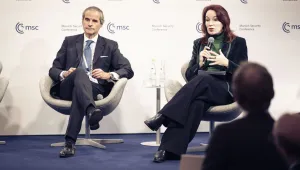Speaker: Nina Silove, Postdoctoral Research Fellow, International Security Program
State officials and policy commentators commonly believe that their own state just "muddles through" when navigating international politics. They also often believe that other states—particularly adversaries or potential adversaries—operate according to comprehensive, long-term plans. These two perceptions cannot, by virtue of their contradictory nature, both be accurate general statements about international politics. To put this point in maximalist terms for clarity: It cannot be simultaneously true that all states muddle through and that all states operate according to comprehensive, long-term plans. The degree to which those two statements are each accurate is not a matter that International Relations scholars have investigated systematically. This is likely because the discipline assumes an answer to this question: the reality is that most states are just muddling through most of the time, and the notion that other states' behavior is the product of "plans, not accidents or confusion," is, in the words of Robert Jervis in his classic work on perception, simply a common misperception.
This seminar addresses the questions of the existence and effects of comprehensive, long term "grand plans" in international politics and their effects on state behavior by examining a least-likely case for finding the existence of operative plans: the responses of the United States to the rise of China.
Please join us! Coffee and tea provided. Everyone is welcome, but admittance will be on a first come–first served basis.




